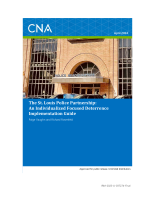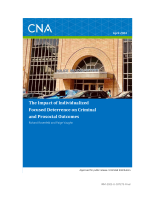An Ecological Model of Place-based Deterrence
Journal
Journal of Quantitative Criminology
Date Published
October 2025
Agencies
NIJ-Sponsored
Publication Type
Research (Applied/Empirical)




